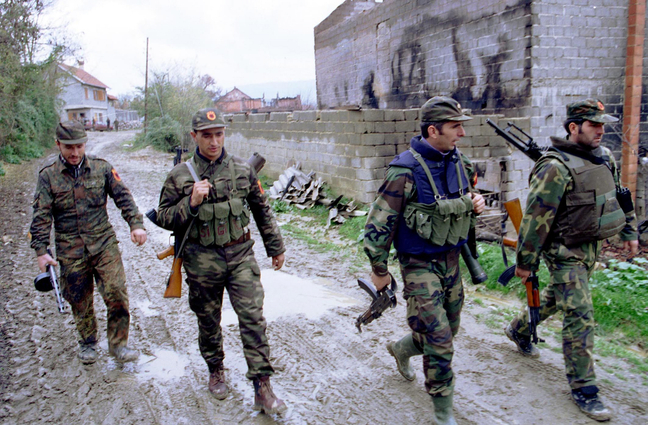Home / Nature & Environment / Climate Change / Achieving Sustainable Development / A criminalised peace? The impact of organised crime and corruption on peacebuilding in Kosovo

Reach your personal and professional goals
Unlock access to hundreds of expert online courses and degrees from top universities and educators to gain accredited qualifications and professional CV-building certificates.
Join over 18 million learners to launch, switch or build upon your career, all at your own pace, across a wide range of topic areas.


 Soldiers of the Kosovo Liberation Army on patrol in the Drenica Triangle in 1998. © Northfoto / Shutterstock.com
Soldiers of the Kosovo Liberation Army on patrol in the Drenica Triangle in 1998. © Northfoto / Shutterstock.com







